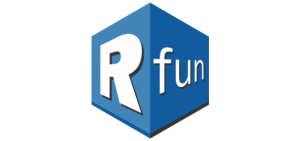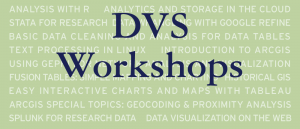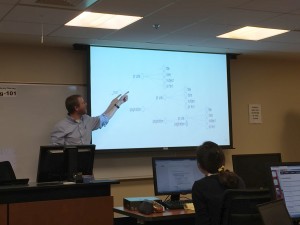 As we begin the new year, the Center of Data and Visualization Sciences is happy to announce a series of twenty-one data workshops designed to empower you to reach your goals in 2022. With a focus on data management, data visualization, and data science, we hope to provide a diverse set of approaches that can save time, increase the impact of your research, and further your career goals.
As we begin the new year, the Center of Data and Visualization Sciences is happy to announce a series of twenty-one data workshops designed to empower you to reach your goals in 2022. With a focus on data management, data visualization, and data science, we hope to provide a diverse set of approaches that can save time, increase the impact of your research, and further your career goals.
While the pandemic has shifted most of our data workshops online, we remain keenly interested in offering workshops that reflect the needs and preferences of the Duke research community. In November, we surveyed our 2021 workshop participants to understand how we can better serve our attendees this spring. We’d like to thank those who participated in our brief email survey and share a few of our observations based on the response that we received.
Workshops Formats
While some of our workshops participants (11%) prefer in-person workshops and others (24%) expressed a preference for hybrid workshops, a little over half of the survey respondents (52%) expressed a preference for live zoom workshops. Our goal for the spring is to continue offering “live” zoom sessions while continuing to explore possibilities for increasing the number of hybrid and in-person options. We hope to reevaluate our workshops communities preferences later this year and will continue to adjust formats as appropriate.

Participant Expectations
With the rapid shift to online content in the last two years coupled with a growing body of online training materials, we are particularly interested in how our workshop attendees evaluate online courses and their expectations for these courses. More specifically, we were curious about whether registering for an online session includes more than simply the expectation of attending the online workshop.
While we are delighted to learn that the majority of our respondents (87%) intend to attend the workshop (our turnout rate has traditionally been about 50%), we learned that a growing number of participants had other expectations (note: for this question, participants could choose more than one response). Roughly sixty-seven percent of the sample indicated they expected to have a recording of the session available. While another sixty-six percent indicated that they expected a copy of the workshop materials (slides, data, code) even if they were unable to attend.
As a result of our survey, CDVS will make an increasing amount of our content available online this spring.. In 2021, we launched a new webpage designed to showcase our learning materials. In addition to our online learning site, CDVS maintains a github site (CDVS) as well as site focused on R learning materials (Rfun).
We appreciate your feedback on the data workshops and look forward to working with you in the upcoming year!








